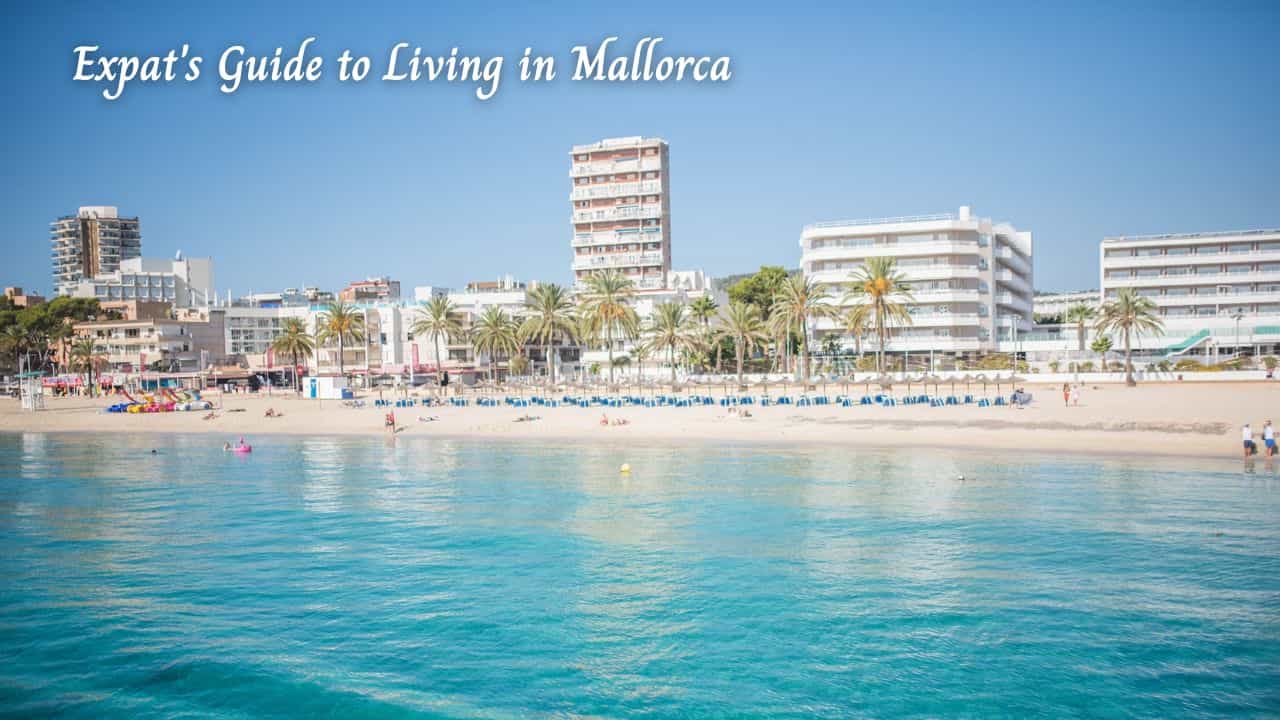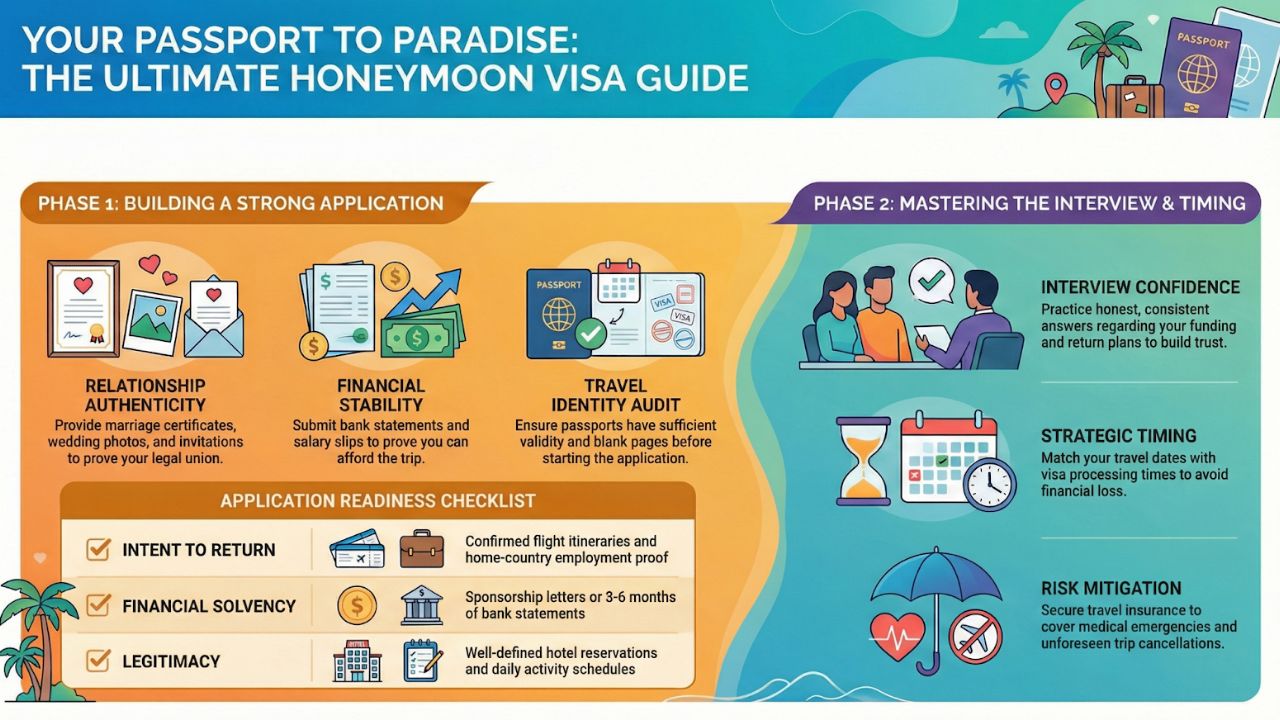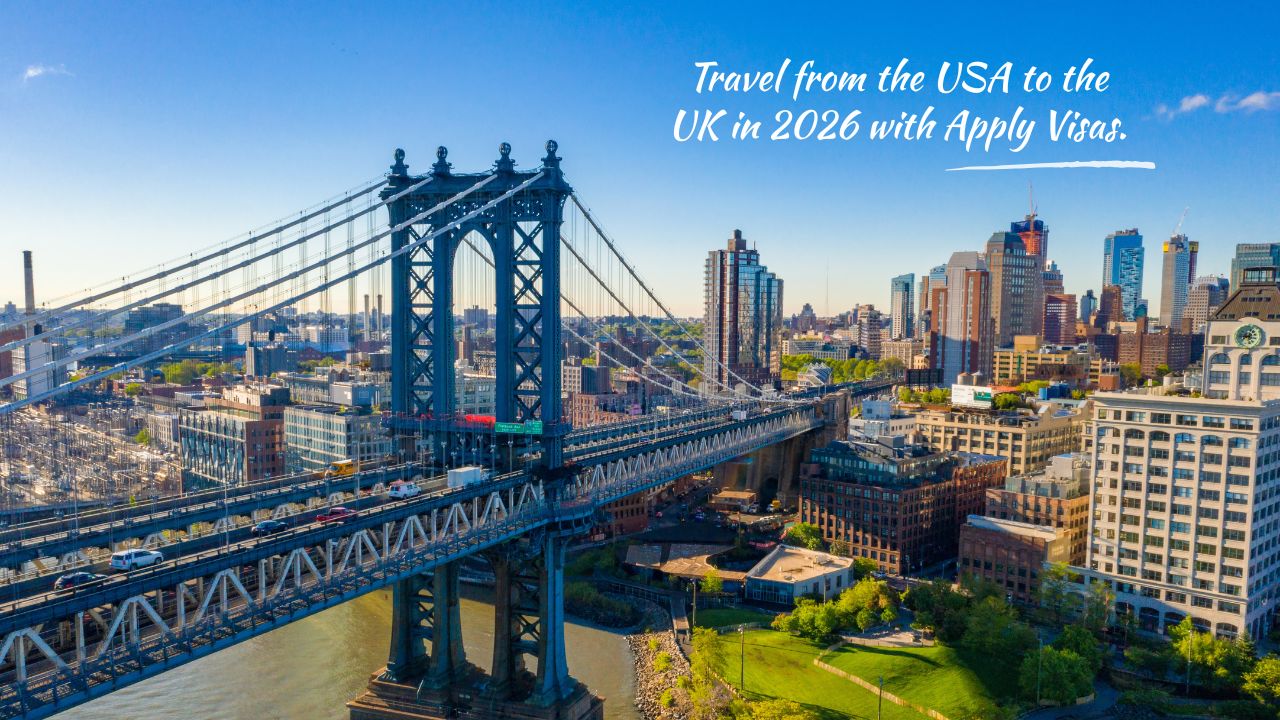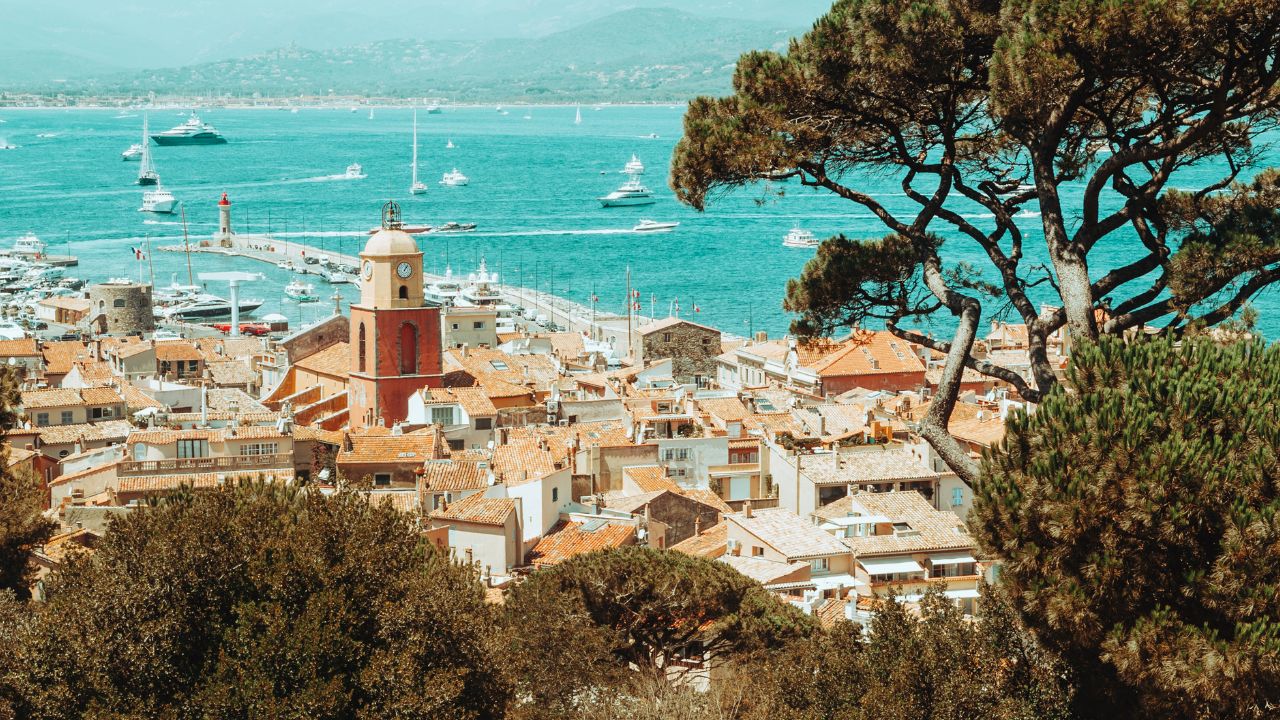After visiting Mallorca for family holidays a lot growing up, I fell in love with the island and always had the thought in the back of my mind that I would eventually move there one day. Little did I know that it would actually come to fruition and I would be able to spend every day on the Mediterranean haven.
Whether you want Palma de Mallorca’s Lin and more high life with iconic beaches or Santa Ponsa, there is something for everyone in the largest of the Bellerian islands. Therefore, it is no surprise that so many expats are moving to mallorca full time.
I’ve really enjoyed my time so far living in Mallorca, which is why I thought it would be useful to share my experience to those who are thinking of doing the same. So, without further ado, let’s explore whether Mallorca is the right living destination for you.
Table of Contents
ToggleWhat Is Life Like in Mallorca for Expats?
The beaches are the hotspot for tourists, which can be an appealing location to live but a lot of expats do prefer the quieter places of Mallorca.
Stunning Weather
There’s no denying that the sunshine is one of the most attractive elements about living in Mallorca with temperatures hitting the mid 20s to mid 30s on a regular basis. July and August are the hottest months of the year, with almost zero rainfall throughout those months. It usually will only reach a low of 7 degrees all year, which is far different from the consistently cold UK temperatures that I was used to.
The days feel longer with the sun shining throughout most of the day, giving plenty of time to visit the beach or get on with your day to day activities. There are plenty of activities to do that are perfect when accompanied by the Mediterranean sunshine.
Plenty of Activities
Along with this, it is no surprise that there are many activities. If you are in exciting nightlife, they have this. If you are in hiking opportunities, they have this. If you are in relaxation activities, they have this. Whatever your wishes are, they will be fulfilled in Mallorca. It is no wonder that many dream of moving to mallorca to enjoy their lively lifestyle.
Mallorca is very well known for its nightlife scene, with different locations offering different levels of entertainment. The younger generation will be more enticed by the nightclubs and the famous strip in Magaluf, whereas places like Manacor will have more lowkey bars and restaurants for older expats to enjoy a nice meal or drink.
My personal favourite place for activities in Mallorca is Palma Nova, as it offers the best of both worlds as you can find both nice lowkey bars and more lively atmospheres within fairly close proximity to each other. You can also relax on the beach whenever you like.
There are also some unique and interesting activities you can do in Mallorca, such as:
- Golf Fantasia – This tropical themed mini golf course, based in Palma Nova, has three different 18 hole courses for families and groups of friends to enjoy.
- Coves del Drach – These four enchanting caves are open for tourists to explore by boat with it ending in a classical music concert that are on a fleet of small rowing boats.
- Explore Fornalutx – Often known as the prettiest village in Spain, Fornalutx is a must-visit for those expats who love rustic and tranquil atmospheres.
- Tren de Sóller – This hour and a half long train journey from Palma to Sóller will offer some of the best mountainous views in all of Mallorca.
- Son Amar Dinner Show – One of the most uniquely spectacular shows you will see, this dinner show combines music, dance and acrobatics to create an amazing extravaganza.
Pros and Cons of Living in Mallorca
Pros of Living in Mallorca
- Fantastic natural beauty – Grand Beaches, Turquoise Water, Dramatic Mountain Range (Sera De Tramuntana) and rural rural areas.
- Mediterranean climate – light winter and warm, one year with 300+ days of sunlight in the sun.
- Outdoor Lifestyle – numerous, hiking, cycling, diving and food from Fresco throughout the year.
- Rich culture and history – a mix of historical cities, architecture, festivals and Spanish and Belleian traditions.
- Gastronomy – fresh seafood, local wine, olive oil, traditional dishes like sobrassada and ensaimada.
- Good infrastructure – International Airport with many direct European compounds; Civilized health services and schooling.
- Multicultural societies – many emigrants (British, German, Scandinavian, French), making it easier to meet people.
- Safe and peaceful – a lower crime rate than many other Mediterranean destinations.
Cons of Living in Mallorca
- High living costs (in some areas) – can be on property prices and rent, especially in Palma and coastal hot places.
- Overload of summer tourism – overload prices inflated in the season with crowds, traffic and top.
- Seasonal economy – many companies stop in winter; Jobs can be unstable in hospitality/tourism.
- Lack of water and drought – can stress summer resources, and limitations are not unusual.
- Language barrier – while English is widely discussed in tourism areas, Catalan (Mallorqui) and Spanish dominate every day.
- Property regulations – strict rules for foreign buyers in rural and protected areas.
- Island Factor – If you want the variety or mainland in the big city, you can feel “cut off”.
- Summer heat – can exceed 35 ° C (95 ° F), causing the dinner activity to become uncomfortable.
What Are The Best Mallorca Neighbourhoods?
The place to live in Mallorca will heavily depend on what type of person you are and what you enjoy. Each place offers something a little different and will attract different types of people. When I moved to Mallorca, I wanted to be in a place that had a lively atmosphere but avoided a lot of the younger tourists that come over for their friend group holidays. With that being said, let’s take a look at some of the best Mallorca neighbourhoods to live in.
Palma de Mallorca
Palma is the hotspot of Mallorca and has the best links to the rest of the island. It is a seafront location that has some beautiful properties to choose from, although they are quite expensive the more central you go. For anyone moving to mallorca, Palma offers a perfect balance of vibrant city life and coastal charm. The Old Town and Santa Catalina have excellent restaurants and bars to visit that will leave you feeling very satisfied.
Sóller
A very popular living location for older residents, Sóller is a beautiful town with modern architecture and glorious mountains that will keep your eyes entertained. There are pleasant country sides throughout the town, which are great for a morning walk in the sun. Houses and flats here are much more affordable than the largest cities in Mallorca, making it very popular for expats to live.
Pollensa
British property buyers are looking to the North of Mallorca for their investments, as places like Pollensa have affordable housing with plenty of facilities in the area. Due to how compact the centre is, there is a great atmosphere all year round with a good range of activities to indulge in.
Santanyí
Famous for its market scene, Santanyí is particularly popular for German expats but there are people from all over Europe that have moved to this rusticly beautiful town. Property prices are relatively affordable compared to Palma and Santa Ponsa and they are mostly stone-built townhouses and villas.
Mallorca Visa Options
There are three main types of visa available for expats who want to live in Spain; Schengen, National and Golden. Each of these are priced differently and have different benefits for expats. Let’s take a closer look at these visa options.
Schengen Visa (Short-Term)
The Schengen Visa allows expats to stay in the country for up to 90 days (in any 180-day period) in the Schengen area of Spain. After these 90 days are up, or if you start a job during this time, EU/EEA residents must register for a T.I.E residency card and tax number. Residents from the UK must apply for a residency visa if they wish to stay more than 90 days.
National Visa (Long-Term)
This visa is for expats who are looking to live in the country for over 90 days. Several types of national visas can be applied for, including:
- Non-Lucrative Residence Visa – For expats who have the financial means to support their living without working there.
- Student Visa – For expats who are looking to study in the country for longer than three months.
- Work Visa – For expats who want to work in Spain.
- Entrepreneur Visa – This is for expats looking to establish a business or invest in one.
- Au Pair Visa – For young expats who will be helping family in exchange for accommodation or board.
- Working Holiday Visa – For expats who want to work during a summer holiday.
Golden Visa
This type of visa is the most expensive and lucrative type of visa and is for expats who have a lot of money or assets. The main goal and purpose of the golden visa is to encourage foreign investment in Spain. It provides the following abilities to the holder:
- Expats can travel around freely without restrictions.
- Have access to a new type of visa at the expiry of this visa, which is valid for two years and can be extended for an extra two.
- You can keep your tax address outside of Spain.
- The Visa can apply to an investor and the rest of their family so that they can all stay in the country.
The costs of all these visas will vary depending on age, nationality and reason for travel.
What I Wish I Knew Before Moving to Mallorca
Find a Community
When I first moved to Mallorca, I struggled to find my place and felt it was really hard to connect with the community. One thing I wish I had known before moving is that there are communities that expats can become a part of to help with getting used to the island. There are plenty of groups out there that you can join like mother-only, business networking, religion-specific and english-speaking groups.
Spanish Language Variants
The majority of Mallorca will speak the traditional Spanish language, but if you want to properly fit in with the culture, you might need to learn more specific types of Spanish. The Castilian variant is used in central Mallorca and the Mallorquin dialect is also used in some parts of the island. While they are very similar to traditional Spanish, they have unique words that can aid you with fitting into the new lifestyle.










